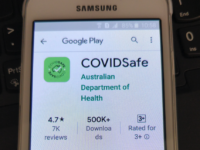Canadian media organizations face difficult challenges in an age of virtually unlimited Internet competition, a dramatic shift toward digital advertising, and an unprecedented global economic and health crisis. That has led media groups to urge the federal government to “take on” Google and Facebook by requiring them to fund local media. Prime Minister Justin Trudeau has thus far declined to do so. That may spark criticism in some quarters but claims that government-mandated payments from Internet companies will solve the sector’s ills are unconvincing.
My Financial Post op-ed notes that everyone agrees the media sector is more competitive than ever. News organizations such as the New York Times and Washington Post, digital media companies like The Athletic and The Logic, podcasters competing with mainstream media audio offerings and the CBC’s continued digital expansion all offer compelling and competitive news alternatives. This breadth of choice for Canadian news consumers isn’t the fault of Google or Facebook. It is a reflection of low barriers to market entry and a proliferation of services that often do a better job than many established media companies of serving specialized content.










